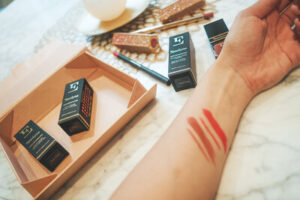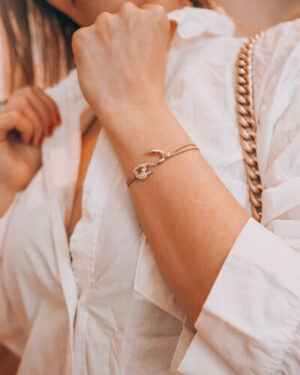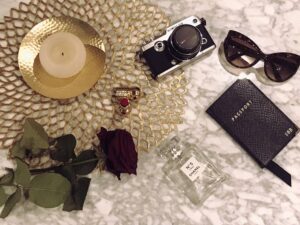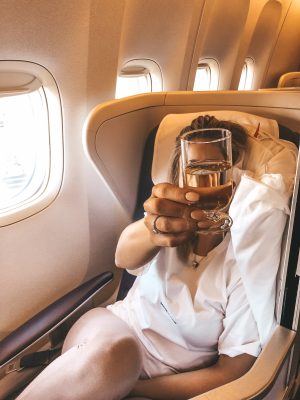Bali today is a tropical mecca for solo travelers, couples, and families looking for adventures, luxe, laid-back vacations, or a complete change of scenery.
But it is also a paradise for shopaholics with its affordable prices, array of handcrafted goods, and plenty of art and retail markets. Amazing souvenirs can be bought in Bali that will remind you of your time on this sunkissed island.
In this shopping guide, we will share insider tips and places where to buy the most unique and authentic gifts to bring home from Bali.
- Best Bali Souvenirs Checklist
- Memorable Things to Buy in Bali
- Balinese Textiles
- Essential Oils & Fragrances
- Sarong and Fan
- Silver Jewelry
- Wooden Carved Gifts (Barong Mask)
- Balinese Art and Prints
- Rattan Bags
- Incense
- Balinese Coffee
- Balinese Sea salt
- Balinese Vanilla
- Custom Leather
- Natural Cosmetics
- Balinese Chocolate
- Ceramics & Pottery
- Home Decor
- Shells
- Balinese Spices
- Boho-Style Macrame Wall Decoration
- Balinese Sweet and Savory Snacks
- Balinese Alcohol
- Balinese Healthy Drink Jamu
- Traditional Kebaya
- Tattoo
- Tridatu Bracelet
- Crystals
- Magnets
- Leather Shadow puppets (Wayang Kulit)
- High-end Souvenirs
- Fun souvenirs from Bali to make friends laugh
This post may include affiliate links.
Best Bali Souvenirs Checklist
- A bit of fashion – Balinese textile (batik, ikat, and songet), a sarong, rattan handbag, and silver jewelry
- A taste of Bali – Bumbu and Sambal, Vanilla, chocolate and coffee, Arak, sea salt, and Jamu
- An aroma of Bali – Essential oils, perfume, incense, and spices blends
- Home decoration – wooden Barong mask, statues, Boho macrame wall art, bowls and shells, rattan and teak wood furniture
- A piece of Bali art – a painting, book, antiques
- A spirit of Bali – Tridatu bracelet, Leather shadow puppet, Kebaya outfit, crystals
- A fun Bali – spicy snacks, fun T-shirts, crazy bottle openers, and a Bali board game
Memorable Things to Buy in Bali
Whether you’re a bohemian, spiritual, down-to-earth, chic, or artsy visitor, shopping in Bali is for everyone’s taste and wallet.
Balinese Textiles
Batik, ikat, and songet are the most common traditional textiles you can purchase in Bali.
Batik shirts, sarongs, and decorations have unique patterns and designs and reflect spiritual, natural, historical, and mythological motifs, as well as daily scenes like working in the rice paddies or ceremonial preparations.
Insider tips:
- Buy fabric by the yard and keep it for your own design.
- Textile sold on the street is rarely real batik or ikat.
- If you will travel to other parts of Indonesia, you can collect regional patterns and learn more about batik history.
Where to buy: specialized shops in Ubud and Denpasar, for ex., Senada Batik Bali.
Essential Oils & Fragrances
Indonesia is a big essential oils producer and exporter and if you’re into aromatherapy, buying oils in Bali will be cheaper and of great quality.
One of the most commonly used is cajuput oil, which helps with headaches, and muscle or stomachaches.
You can easily find these oils to buy in Bali:
- patchouli (nilam),
- vetiver (akarwangi),
- cananga (kenanga),
- lemongrass (sereh dapur),
- clove (cengkeh),
- sandalwood (cendana),
- nutmeg (pala),
- cinnamon (kayu manis),
- pepper (lada).
If you venture through tiny roads around Kintamani area you can even see some big clove trees and how local people dry them in the sun.
Where to buy: Utama Spice, Zero Waste Bali, Bali Radiance.
How much: from 50k IDR (USD 3) per 10ml bottle.
Sarong and Fan
A holiday in Bali is not complete without buying a sarong on the beach (or in a fancier shop if you’d like). Lovely local ladies are often around the parking near the beach selling simple jewelry, fans, and sarongs.
A sarong can be anything – a wraparound skirt, beachwear, scarf, top, headpiece, and a beach picnic blanket.
And a fan is a simple necessity in hot and humid Bali weather.
Where to buy: any market and souvenir shop or often near the beach or parking lots. Sometimes a supermarkets like Coco also sell sarongs.
How much: from 20K IDR (USD 1.30) to 100K.

Silver Jewelry
Silver is known to protect from evil spirits for Balinese. If you are visiting Ubud or Sidemen you should definitely try to make your own jewelry!
There are a few workshops even for couples. Is there anything more romantic than making your matching rings in Bali?
And if you don’t feel crafty there is an array of accessories to treat yourself with: from simple thread bracelets and necklaces with shells and beads to silver, gold, and diamonds.
Where to find:
- Workshops are common in Ubud and Sidemen ( Pondok Pekak Library workshops, Studio Perak, John Hardy Workshop).
- To buy directly: Celuk village in Ubud, Sunaka shop.
How much: Traditional silver items – around 1 million IDR (USD 65), workshops are 350-450k (USD 23-29).
Insider tips:
To avoid fake and poor-quality silver, gold, and diamonds, you must be very meticulous about quality when buying them in the shops. Do not visit “your driver’s friend shop,” as it is a common tourist scam.
Wooden Carved Gifts (Barong Mask)
Local artisans are famous for their amazing, intricate wooden carvings, which range from small statues to massive gates.
If you have a little space left in your luggage, get a custom-made carved mask of Barong, the main guardian spirit in Bali, or some statues, such as a Ganesha statue.
If you don’t have much space – you can get a nice souvenir like a wooden comb or a tray.
Where to buy: Abang shop near Bintang Supermarket, Seminyak, and shops in Ubud.
How much: around 160K IDR (USD 10) for a pre-made Barong mask.
Balinese Art and Prints
Bali is a very artsy place, and most artists flock to Ubud.
Balinese art consists of intricate, colorful, highly detailed paintings of nature, animals, religious motifs, and the beautiful Balinese people.
An amazing gift would be a smaller-size print of traditional Balinese art, black and white photos from the 70s and 80s of gorgeous Balinese women in traditional attires, a print or poster of an old map of Bali, or even a book about Balinese culture with high-quality illustrations.
Some Balians—healers or shamans—can also be part-time artists. While visiting their houses, you will see beautiful traditional Balinese art, which you can often buy for a donation.
Another unique traditional art is carved paintings on thin wooden panels.
Where to buy: Ego Artisan shop in Ubud, Nyaman Gallery in Seminyak, Billie’s in Canggu, La Brisa Sunday market in Canggu, art museums in Ubud and Sanur, local small shops. Periplus book shops for books about Bali.
How much: prices vary significantly from a few dollars to a few hundred. Prints cost around 300k (USD 20) at Billie’s.
Rattan Bags
For fashionistas, Balinese crafters have a great choice of handbags – from cute tote bags to handmade rattan bags.
Rattan bags are the quintessential choice, and they look great in any outfit and occasion – from a day on the beach to a treat-yourself night out in a restaurant in Canggu.
The top pick is a minimalist round-shaped rattan bag. But if you love to draw attention – choose bright bags with pom-poms, feathers, or beads!
Insider tip:
If the material is more important to you than style, ensure you’re truly buying a rattan bag. Rattan is hard to paint, so brightly painted bags are unlikely to be rattan but straw or seagrass.
Where to buy: Handbags will be everywhere on the side of the road in tourist areas. Ubud is the best place to buy authentic rattan, as Seminyak has some “fake” ones.
How much: in small villages and less tourist areas, it can be 30-50K (USD 2), but in a boutique, it can be up to 500K (USD 33), depending on size and design.

Incense
Something that you will catch up among the first things in Bali will be this gentle, warm aroma that follows you everywhere and fills up the streets.
Incense is a big part of daily ceremonial offerings for Balinese people, and burning and waving incense symbolizes the presence of Gods and spirits.
It is the perfect souvenir for yoga and meditation enthusiasts, as well as for spa sessions.
Where to buy: local market or organic shops and markets for foreigners like Bali Buddha or Utama Spice.
Balinese Coffee
Balinese people take big pride in their coffee history and production.
Kintamani region in Bali produces good arabica, robusta, and the most expensive coffee in the world – Kopi Luwak or Luwak coffee.
While arabica and robusta are well known and respected by coffee lovers, coffee Luwak has a controversial reputation.
To produce Luwak coffee, little furry animals called civets or Luwaks have to eat and poop the coffee beans that will be later collected and prepped.
Unfortunately, we cannot guarantee that all tourist spots are sustainable and do not mistreat animals.
Where to try: Kintamani coffee shops with amazing views of Mount Batur or at Cafe F.R.E.A.K in Ubud. For Luwak coffee, visit the plantations around Gianyar, such as, ‘Mas Plantations and luwak coffee’.
Insider tip:
Be careful not to get fake Luwak coffee. Real Luwak beans are from wild, not caged animals, are uniform, and have an herbal, leafy smell more like green tea. They don’t smell like regular coffee and taste weaker and nuttier.
Balinese Sea salt
By visiting some beaches on the East coast of Bali,, you can see how sea salt was traditionally produced and learn about the process directly from local farmers.
Where to find: small local farms around Kusamba beach for an improvised tour – Garam Organik Uyah Kusamba.
To buy a small bag, go to organic shops like Bali Direct.
Insider tip:
Have your local friend accompany you, as farmers do not usually speak English.
Balinese Vanilla
Bali’s fertile soil is amazing for growing (and exporting) some of the best vanilla in the world.
You can buy fresh vanilla or some products here directly from producers and even visit a vanilla farm.
Using fresh vanilla beans, you can make your own vanilla extract by submerging them in vodka for a few months. This is amazing for baking and doesn’t compare with store-bought vanilla.
Where to find: for tours – Bali Vanilla Farm, to buy vanilla beans and vanilla-infused products – Nature Pods.
Custom Leather
Custom or premade leather shoes, boots, jackets, and bags will make an amazing gift from Bali. Balinese artisans mostly use cow leather, suede, goatskin for clothing and snakeskin for shoes and bags.
Faux leather is now also available in Bali made of synthetic materials.
Where to buy: Seminyak Leather Bali or small local artisan shops in Legian, Ubud, Semiyak that don’t usually have a name. Azam’s Leather in Canggu.
How much: from 1.2 million IDR for a pair of sandals (USD 76).
Natural Cosmetics
Natural deodorants, Balinese natural soaps, organic toothpaste, and skincare are very popular in Bali. Local brands source the best ingredients that grow in Bali and, through sustainable processes, create great products for your skin and hair.
Some of the absolute favorites are the Elixir serum from Mademoiselle Kelapa, facewashes from Sensatia Botanical, and products from Utama Spice.
Where to buy:
- Utama Spice
- Sensatia Botanical
- Bali Buddha
- Mademoiselle Kelapa
- Sunday market at La Brisa (Canggu), and many more.
Balinese Chocolate
If you have a real sweet tooth, visit chocolate shops and tours in Bali. Better yet, make your own chocolate bar while learning about the whole process and the different types of chocolate.
Where & How Much: a little tour about chocolate in Bali and production + shop – Secret Garden.
To buy chocolate, visit special shops like Raw Ubud, Sacred Cacao, and Slab Crafted Chocolate, or you can find brands like Pod and Krakakoa chocolate in Pepito/Frestive supermarkets.
To make your own chocolate head to Primo Chocolab Bali in Tabanan (book directly or through Airbnb). The price is 750K IDR per person (approx USD 49).
Ceramics & Pottery
In Bali and Java, you can either make your own plates and cups or buy them from local handymen. You’ll find many of the things you might want, from classic dining pieces to very creative vases and cups.
Where to buy: Local shops. Kevala shop and workshops. Tegallalang village.
Home Decor
Bali is a true paradise for those obsessed with home decor and interior design. Handmade items of wood, coconut shell, rattan, ilang ilang, seagrass, stone, and other natural materials are affordable, stylish, and unique.
Bowls with mother of pearl inside, stacker for keys, carved skulls, handmade dream catchers, bamboo food holders and straws, coasters, brass fittings, woven baskets…the list goes on!
Where to find: The best place to shop for these is the markets in less touristy areas unless you are willing to pay a hefty price markup. Ubud is well-known for all sorts of handicrafts, but you can also find them in Semiyak.
Shells
Shells make a beautiful souvenir for ocean lovers, and are also easiest on the wallet! The biggest and prettiest ones can be found on smaller islands around Bali, like on the white sandy beaches of Nusa Lembongan.
You can take 1 or 2, but let’s leave most of them for hermit crabs!
Balinese Spices
Balinese cuisine is full of flavors and spices that locals master flawlessly.
We highly recommend taking a cooking class in Ubud to bring home some recipes and surprise your friends and family with dinner.
The spices that grow and are most commonly used in Bali are ginger, shallot, garlic, galangal, turmeric, coriander, black and white pepper, cumin, clove, nutmeg, sesame seeds, chili, lemongrass, kafir lime, and candlenut.
Probably the most popular use for many herbs and spices is the famous Balinese paste called bumbu or a spicy mix of chili peppers called sambal, which goes perfectly with meat. Buy a jar to bring back home!
If you source it from the village, there is a great chance it was made by hand over a few days in a long and tedious process.
Where to buy: local markets, regular supermarkets, village street stalls.
Boho-Style Macrame Wall Decoration
Balinese artisans create intricate hand-made macrame wall art, hammocks, and plant pot holders that you can easily pack in your suitcase. They are often milky white with nice wooden hangers, but can also be custom-made.
Where to find: Markets or online shop Macrame Agung Keramat.
How much: from USD 4 for a dream catcher or USD 19 for a wall piece.
Balinese Sweet and Savory Snacks
Foodies should try to taste as many local treats as they can! Some flavors are super unique, like nutty sweet and spicy crackers, fried bananas, tofu crackers, Pie susu (milk pies), Pia Legong (stuffed pastry), spicy peanuts, etc.
One of the local’s favorites is a cup noodles brand – Indomie. For a healthier snack, buy some local cashews!
Where to buy: Markets. Pie susu from Pie Susu Enaak – original flavor, chocolate, and cheese are worth trying! Pia Legong Bali shop.
Balinese Alcohol
In Bali, it’s worth visiting the northern regions to shop for coffee and strong liquors. The most famous Balinese alcohol is Arak, which is fermented coconut sap.
A couple of distilleries offer tours to explain and show the process, mainly in the Karangasem and Batukaru areas in Bali. Karusotju Distillery offers a tasting experience and has a shop, which is located in a picturesque area.
If you are not into strong alcohol, you should try locally brewed beers! Black Sand Brewery, South East Brewery, Island Brewing, and Kura Kura beers can be found in Canggu and around, but there are also more exotic fruity beers by IOI Brewery you should definitely try.
How much?:
- Beer tours + BBQ at IOI brewery is 295K IDR (USD 19) per pax (RSVP),
- Beers in Black Sand is from 45K IDR per can (USD 2.9).
- Tasting at Karusotju is 150k/person IDR (USD 10).
Note: Under no circumstances should you ever accept homemade arak-based drinks from strangers or in a bar you’re at for the first time. A bad batch can have serious health consequences, including blindness.
Balinese Healthy Drink Jamu
The most popular health drink in Bali is Jamu. It is a powerful herbal tonic and immune booster. It usually includes turmeric, ginger, galangal, tamarind, and peppercorns. You can order one to be made or buy it on the market or in a supermarket (commercially produced).
Traditional Kebaya
Balinese men and women wear traditional outfits for ceremonies. They are called kebaya and can be quite simple or very elegant and intricate (and more expensive). It is a skirt, shirt, and fabric belt for women and a wraparound skirt, fabric belt, and headpiece for men.
How much: A simple set will be under 200k IDR.
Tattoo
It can catch you by surprise, but many travelers bring home something on their bodies – Bali-inspired tattoos! Some tattoo ideas include traditional handpoke tattoos or tattoos of Bali symbols such as the plumeria flower, sunset, Barong, etc.
Where to get: Handpoke tattoos, western-style tattoo studios – Baba Yaga, Koloni.
Tridatu Bracelet
One of the most symbolic things to get in Bali comes through a shaman visit or purification ceremony – a bracelet with three threads: red, black, and white.
For Balinese, Tridatu means the sacred trinity of Brahma (the creator), Visnu (the preserver), and Shiva (the destroyer). The belief is that the bracelet gives protection, and you should wear it until your wish comes true.
Crystals
If you are into spirituality, spend a few days in Ubud, attend yoga and breathwork classes, and make like-minded friends.
You can also buy protective crystals, water bottles with charged crystals, and smaller healing stones.
Where: shops in Ubud, for example, in Parq Ubud, and Amethysta shop in Canggu.
Magnets
You may think nobody buys magnets while on trips, but many parents and grandparents love them and proudly collect them to show to their guests.
Be creative and pick some original ones. As Bali is a surfing destination, you can pick one shaped like a surfboard.
Magnets are available for sale along all main tourist streets in Bali (Seminyak, Berawa, Batu Bolong).
Leather Shadow puppets (Wayang Kulit)
Traditional theatrical performances telling the story of Bali always use dancing, Balinese music, and flat cut-out shadow puppets called Wayang Kulit.
They are commonly made of leather and you can buy some of the puppets representing mythological or spiritual characters.
Where to find: Kuluk Gallery in Ubud
How much: approx 1 million IDR (USD 65).
High-end Souvenirs
Teak and rattan furniture, antiques, art, and musical instruments can also be amazing collectibles and souvenirs from Bali.
For music lovers, there are a few traditional musical instruments you may be interested in such as metallophones with drums (gamelan), bamboo flutes (suling), and drums (kendang).
They are often quite large and require sea/plane shipping, which will cost much more.
Where to find: Saya Gallery, Kuluk Gallery, and Bambooku Gallery.
Approximate cost: Antiques and furniture can be quite expensive. For shipping costs: 1 cubic meter with sea shipping to the port starts from USD 360.
Fun Souvenirs from Bali to Make Friends Laugh
You can buy many entertaining things in Bali and gift them as a farewell present or bring them home.
The most popular are T-shirts with the local beer brand logo – Bintang, or “Nasi Goreng” written on them, a traditional fried rice dish in Indonesia.
If you have lots of space in your luggage and a motorcycle back home, you can even splurge on a unique (or crazy) helmet. You can find a stormtrooper-inspired decorative helmet in Ubud, or a functional one with horns, cat ears, or braids in Canggu.
Gift to Buy for Friends Made in Bali – Blank in Bali game
If you spent some time in Bali with your friends, the Blank in Bali board game will bring all the memories back.
It is a quintessential fun game reflecting all common “stereotypes” and jokes about living in Bali as expats or tourists, and it guarantees laughter and good times with friends.
Where to buy: Billie’s shops around the island.
How much: The main game is 350k IDR (USD 23), a pack of 6 extensions for an additional 400k (USD 26).
Best Shopping Places In Bali
Our general recommendation is to go to Ubud for art, crafts, silver jewelry, paintings, and antiques. Visit Canggu, Kuta, or Semiyak for some basic tourist souvenirs, and have a day trip to the Kintamani and Batukaru areas for coffee, chocolate, vanilla, and distilleries.
More Authentic Spots to Buy Souvenirs:
- Celuk Village in Ubud is famous for silver and gold jewelry
- Monkey Forest Road in Ubud has dozens of shops filled with tourist souvenirs, home decor, paintings, and antiques
- Jenggala is known for good ceramics
- Ubud Art Market – handcrafted Balinese souvenirs
- Sukawati Art Market – handcrafts and textiles on a budget
- Tegallalang ‘Handicrafts Village’ – shop wood carvings, paintings, furniture, sculpture, and ceramics
- Kereneng Night Market to shop for batik
- Kumbasari Art Market, a traditional market in Denpasar – handcrafts, paintings, jewelry, textiles, and souvenirs
- Sindhu Beach Market in Sanur – a Balinese version of a hawker market. Mostly food and snacks.
More Western and Touristy Shopping Spots:
- Kuta Beachwalk is one of the biggest malls in Bali, right on the beach.
- Kuta Square is a simple arrangement of small shops, mostly clothing, textiles, and small souvenirs.
- Legian Lane street sidewalks are filled with modern Western clothing shops, local souvenir shops, and leather shops.
- Seminyak Flea Market – a simple market, but it is in a very tourist-rich area.
- There is a crafts market in Batu Bolong on Batu Bolong Street, where shoppers can find souvenirs, clothes, and bags on the sidewalks.
- Love Anchor in Canggu is a market with a few shops with lots of jewelry, beachwear, and home & kitchen decor)
- Krishna Oleh Oleh – a big tourist-oriented souvenirs shop in Kuta
- Shocked Dog Market in Canggu – less authentic but lots of tourist souvenirs and affordable clothing.
Shopping In Bali: Essential Tips
- If you’d like to say “thank you”, use Indonesian word Terima kasih [trimakasi] or Balinese word Matur Suksema [matur suskma]
- It is common to bargain as the real prices are often up to 50-75% lower than the price you will be given.
- Use Google Translate as most vendors, especially in less popular areas, do not speak English. Learn a bit of Indonesian with Duolingo.
- Get a tote bag and carry it around in case you will go shopping. It is also easier to care for a tote bag – just wash it.
- Shopping in small local shops and markets is easier with cash. International cards often also have 2-3% additional processing fees. However, to get cash, please only use official money changers, not those that look like sheds on the sidewalks. Unfortunately, they can be scams.
- Do a quality check before handing money over, as markets don’t have return and refund policies. This is very important for wooden crafts – termites can get to them, so inspect for any small holes and wooden “dust.”
- Make sure you have space in your luggage and can bring an item out of Indonesia and into your own country.
To Wrap Up
One thing is certain—it doesn’t matter if you miss something from this list. You will surely bring home amazing memories of beautiful sunsets, the aroma of incense, rice field views, new friendships, and tons of stunning photos.
And those things are priceless!
Don’t forget to pin this article if you found it helpful, and follow Dukes Avenue on Pinterest for more.
Masha Eretnova is a nomad artist and art blogger based in Bali for the last 4 years. She has visited many areas around the island to explore the scenery and culture beyond just the tourist spots. Masha travels around the world and Indonesia, sharing her passion for art with beginners through her blog and Youtube.
-
This author does not have any more posts.





